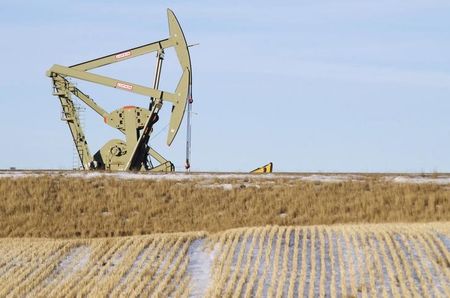Oil prices edge higher as dollar weakens; China woes weigh
2024.06.30 21:41

Investing.com– Oil prices rose in Asian trade on Monday, benefiting from a softer dollar as recent inflation data saw traders increase bets that the Federal Reserve will cut interest rates by September.
But bigger gains were held back by concerns over top importer China, after data released over the weekend showed business activity in the country remained fragile.
expiring in September rose 0.3% to $85.29 a barrel, while rose 0.4% to $81.84 a barrel by 21:10 ET (01:10 GMT).
Both contracts were sitting on bumper gains through June as geopolitical ructions in the Middle East and Russia pushed up concerns over potential disruptions in supply, which saw traders attach a greater risk premium to crude.
Oil benefits from softer dollar, more rate cues awaited
The fell about 0.2% in Asian trade, extending declines from Friday after – which is the Fed’s preferred inflation gauge- showed inflation eased mildly in May.
The reading spurred some optimism that U.S. inflation was cooling, and saw traders ramp up bets on a 25 basis point rate cut in September, which weighed on the greenback.
A softer dollar benefits oil demand by making the commodity cheaper for international buyers. It also makes for increased risk appetite among traders.
Focus this week is on signals from the Fed, with set to speak on Tuesday, while the are due on Wednesday.
Key data is also due on Friday, with the labor market being a key consideration for the Fed in moving interest rates.
But even with positive signals on interest rates, inventory data released last week showed that U.S. fuel demand remained weak despite increased travel during the summer season.
China PMIs weak, demand concerns grow
Soft purchasing managers index data from China, released over the weekend, raised concerns over the world’s biggest oil importer.
in the country shrank for a second consecutive month, while was also seen softening.
The PMI data ramped up concerns that economic growth in the country was dwindling despite recent stimulus measures, which could bode poorly for crude demand.








